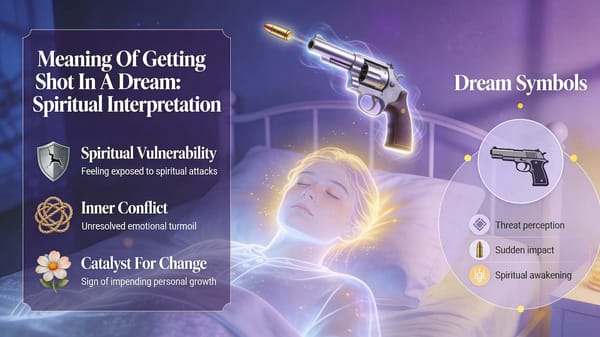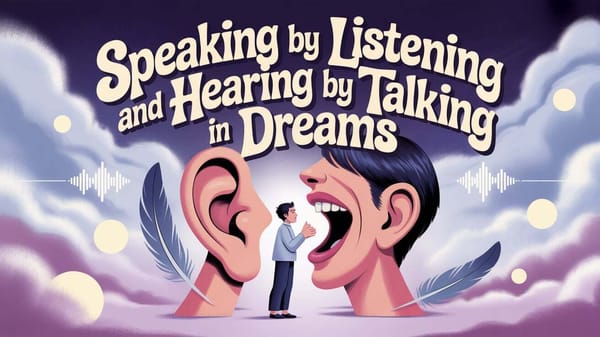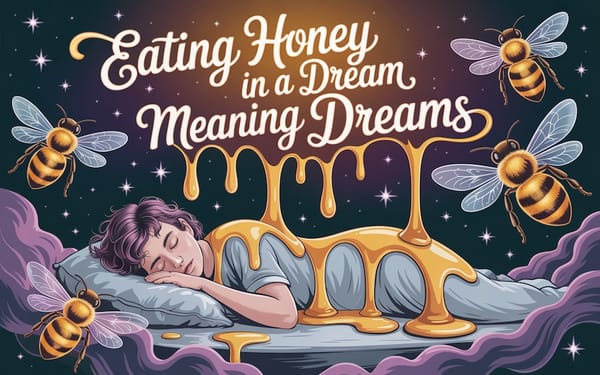Shared Dreams: Unveiling Collaborative Visions for a Better Tomorrow
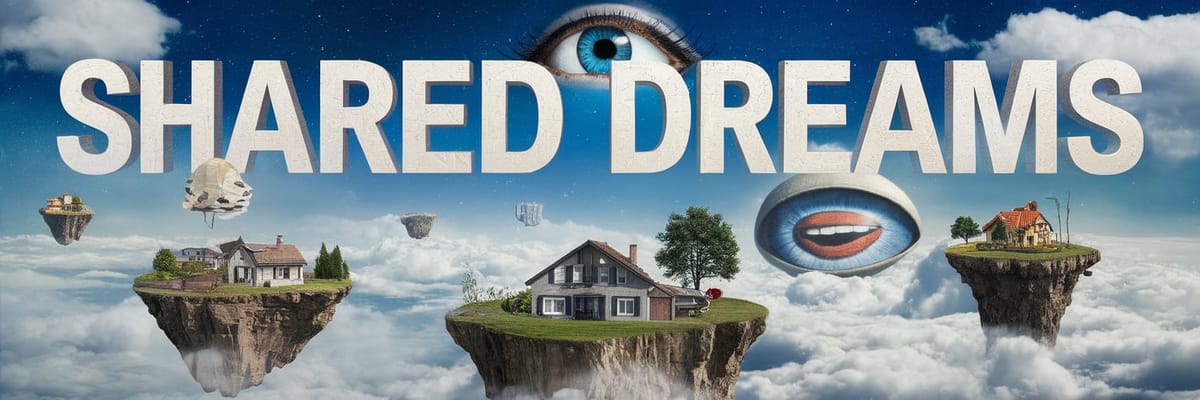
Dreams have long captivated human curiosity, serving as both reflections of our innermost thoughts and a realm where the impossible becomes tangible. Among the most intriguing phenomena within this wondrous landscape are dreams where individuals share the same experience or even enter into one another's dreams. Known as shared dreams, these occurrences evoke a sense of profound connection, blurring the boundaries between individual consciousness and the collective unconscious.

From ancient shamanic practices to contemporary dream groups, the concept of shared dreaming is prevalent across cultures and time periods. It holds a significant place in mythology and spirituality—suggesting a link to universal truths or secrets buried within our psyches. In today's world, it raises questions about empathy, communication, and the interconnectedness of human experience.
Overview
Shared dreams are those rare instances where two or more people recall experiencing the same, or strikingly similar, dream. These extraordinary encounters often leave dreamers pondering the spiritual and psychological connections that could lead to such an occurrence. While some dismiss shared dreams as mere coincidences or fabrications, others seek a deeper understanding of their implications.
The Symbolic and Spiritual Significance of Sharing Dreams with Others
In exploring the symbolic and spiritual dimensions of sharing dreams with others, we encounter themes that resonate with both personal and universal significance. Dreams can symbolize untouched potential, hidden desires, or unresolved conflicts. When these dreams are shared, it underscores a profound communal narrative in which individuals are intimately linked.
Independence and Unity: Sharing dreams can highlight the balance between our need for individuality and the yearning for connection. This duality reflects the intricacies of human relationships and can reveal both interdependence and autonomy.
Mystery and Revelation: Dreams are steeped in mystery, often offering tantalizing glimpses of emotions or memories that lie beneath the surface. Shared dreams amplify this mystery and provide shared revelations, suggesting a meeting of minds on a subconscious level.
Intuition and Insight: Engaging in shared dreams can also symbolize heightened intuition and insight. The ability to experience a dream with another suggests keen perceptiveness and emotional intelligence, providing a potential source of guidance in waking life.
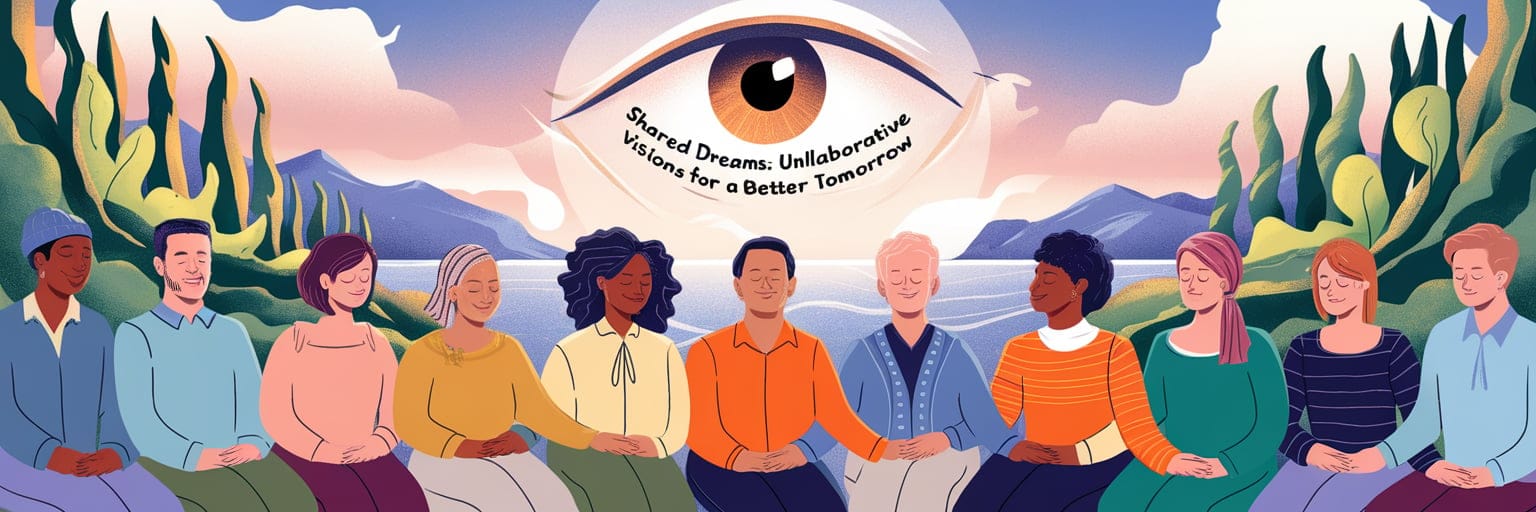
What Do Different Sharing Dreams with Others Scenarios Mean?
Different scenarios within shared dreams can vary widely, each carrying its own significance and meaning:
Scenario 1: Communal Adventure
If a dream involves a group of people embarking on an adventure, it may symbolize a collective goal or shared experience in waking life. The camaraderie in the dream reflects the importance of teamwork and the value of mutual support.
Scenario 2: Emotional Sharing
A dream where emotions are shared or mirrored among participants suggests deep empathy and understanding. Such dreams may occur when individuals are undergoing similar life challenges, emphasizing the importance of emotional bonds.
Scenario 3: Conflict Resolution
Shared dreams that involve resolving conflict can point to underlying tensions that require attention. These dreams serve as metaphors for collaboration in overcoming disagreements or misunderstandings.
Psychological Interpretations of Sharing Dreams with Others
Psychologists have long debated the phenomenon of shared dreaming, offering various interpretations:
Freudian Perspective
Sigmund Freud might argue that shared dreams reveal repressed desires and unresolved issues. The shared nature may indicate shared anxieties or desires that are unspoken in waking life, manifesting collectively in the dream realm.
Jungian Interpretation
Carl Jung, on the other hand, would likely view shared dreams as tapping into the collective unconscious. Jung believed in a shared repository of archetypes and symbols, and a shared dream could be an expression of these universal experiences.
Reiki Insights
From a Reiki perspective, shared dreams may signal energy alignment or an exchange between individuals. These dreams can reflect a spiritual connection that transcends physical boundaries, encouraging mutual healing and growth.
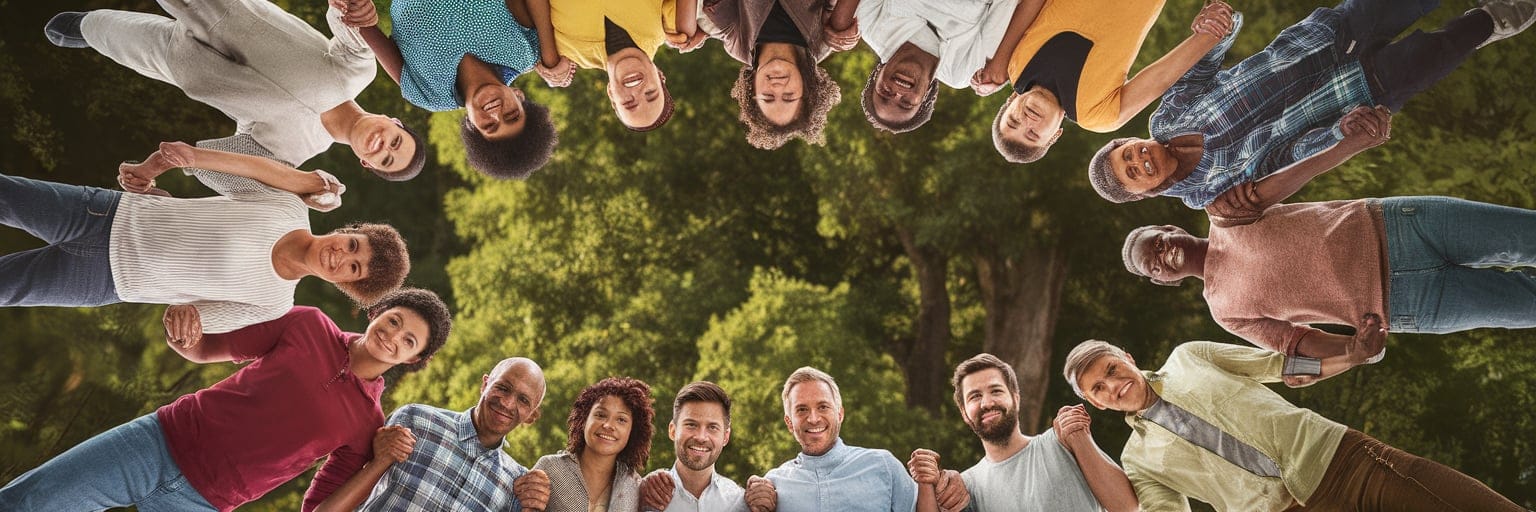
Common Causes and Factors Behind Sharing Dreams with Others
Several factors may influence the occurrence of shared dreams:
- Stress and Anxiety: Emotional states can align with others, particularly if individuals share similar anxieties or stressors, leading to shared dream experiences.
- Strong Emotional Bonds: Shared dreams often occur between people who have tight-knit bonds, whether it be through family ties, friendship, or romantic relationships.
- Collective Experiences: Events or environments that are intensely shared in waking life (such as major life changes) can lead to a convergence in dream content.
Scientific Explanations for Sharing Dreams with Others in Dreams
Though difficult to study scientifically, shared dreams might be explained by overlapping sensory experiences or neurological mirroring:
- Neurological Overlap: It's plausible that similar neural structures could lead to parallel dreams—in other words, common neural pathways might process information in similar ways, giving rise to shared dream themes.
- Environmental Factors: Similar sleeping conditions or environments, such as sounds or smells, might trigger corresponding dream elements.
Coping Strategies for Sharing Dreams with Others in Dreams
For those who frequently experience shared dreams and wish to gain deeper understanding or control over them, consider the following approaches:
- Keep a Dream Journal: Documenting dreams can unveil patterns and enhance understanding of shared dream experiences.
- Seek Professional Guidance: Consulting a therapist skilled in dream analysis might provide insight into underlying emotions and connections.
- Cultivate Intention: Setting intentions before sleep and practicing mindfulness can help manage and interpret shared dreams.
- Enhance Sleep Quality: Improving sleep hygiene—by creating a conducive sleep environment and establishing a regular sleep routine—can affect dream recall and content.
Summary & Final Thoughts
In the mysterious realm of dreams, sharing dreams with others offers a captivating glimpse into the intertwined tapestry of human experience. These dreams invite us to reflect on our connections with others, delving into shared emotions, experiences, and the collective subconscious. By exploring shared dreams, readers may uncover profound truths about their relationships and psyche, encouraging deeper introspection and understanding of their waking lives.
The next time you encounter a shared dream, consider it an opportunity to explore not only the dreams that unite us but also the intricate bonds that bind us in our shared humanity.
FAQ: Deciphering the Phenomenon of Shared Dreams
What are shared dreams?
Shared dreams are a phenomenon wherein two or more individuals report having highly similar or identical dream experiences within the same timeframe. These dreams suggest potential points of connection between distinct consciousnesses.
Are shared dreams just coincidences?
While some argue shared dreams are coincidences, others consider them significant. They may suggest deeper connections between people or a collective consciousness.
What is the symbolic and spiritual significance of sharing dreams with others?
Spiritually, shared dreams could imply a deep, intuitive connection and the entrainment of emotional states. They could symbolize unity, collective insight, and interpersonal bonds.
What does a communal adventure scenario in a shared dream signify?
A communal adventure within a shared dream often represents common goals or shared experiences. It can symbolize collective achievements, cooperation, and mutual support.
What does an emotional sharing scenario in a shared dream suggest?
Emotional sharing in a shared dream indicates a deep level of empathy, mutual understanding, and a shared emotional journey or experience.
How are conflict resolution scenarios in shared dreams significant?
Conflict resolution scenarios in shared dreams suggest the need to address and resolve interpersonal conflict. They can symbolize collective problem-solving or the resolution of shared tensions.
What are some psychological interpretations of shared dreams?
- Freudian View: Shared dreams could represent common repressed desires or unresolved issues.
- Jungian Analysis: From a Jungian perspective, these dreams might express a shared cultural or human experience through archetypal symbols.
- Reiki/Energy Perspective: In energy healing, shared dreams might indicate a shared energy or resonance between individuals.
What factors lead to shared dreams?
Factors that can contribute to shared dreams include emotional closeness, shared experiences, similar viewpoints, or collective traumas or stressors.
Are there scientific explanations for shared dreams?
While shared dreams aren’t widely studied in science, theories suggest similar environmental factors, shared experiences, or even similar brain patterns could contribute to similar dreams.
How can one cope with frequent shared dreams?
Options include keeping a dream journal to identify patterns, seeking professional counseling to understand the psychological implications, practicing mindfulness to regulate your emotional state before sleep, and optimizing sleep hygiene to promote better sleep and dream recall.
What are the final thoughts on shared dreams?
While intriguing, shared dreams should be approached cautiously. They can invite introspection and foster a deeper understanding of collective experience, encouraging exploration of emotional, shared, and spiritual bonds.

